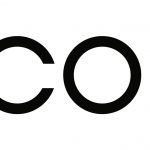Description
We invite applications for a Master’s thesis / semester project that focuses on the fabrication of microrobots with custom shapes. Using our developed droplet printing technique, this project will explore how different microrobot shapes, created by different magnetic fields and materials, influence their control behaviors in blood vessels. This research aims to advance biomedical technologies, particularly in targeted drug delivery and minimally invasive procedures.
Keywords: Microrobotics, Microfabrication, Magnetic Assembly, Fluid dynamics
Project background
In recent years, the field of microrobotics has garnered significant attention, particularly for its potential applications in biomedical engineering, such as targeted drug delivery, minimally invasive surgery, and precise medical diagnostics. Traditional microrobot fabrication techniques predominantly rely on top-down methods, such as 3D printing and lithography. While effective, these methods often involve complex, time-consuming processes and face limitations in achieving high precision at the microscale.
Project details
Our approach diverges from these conventional methods by employing a bottom-up fabrication technique, leveraging the principles of self-assembly and droplet manipulation. Specifically, we focus on the innovative use of ferrofluid droplets and magnetic fields to sculpt microrobots with customized shapes. This method allows for greater flexibility and precision in designing microrobots, enabling the creation of complex geometries that would be challenging to achieve with top-down techniques.
Project goal
- Build up a droplet printing fabrication platform towards microrobots fabrications. (~ 1 month)
- Optimize the fabrication process to produce microrobots with tailored structures. (~ 3 months)
- Investigate how different microrobot shapes influence their movement under physiological conditions. (~ 2 months)
The following experience or skills would be ideal but not necessary:
- Know-how in nanoparticles synthesis & self-assembly.
- Prior experience in chemistry lab.
- Prior experience or knowledge in magnetic control systems.
Reference
M. Hu et al. “Shaping the assembly of superparamagnetic nanoparticles.” ACS Nano 13.3 (2019): 3015-3022.
Contact
Please contact minghu@ethz.ch (Dr. Minghan Hu, Ambizione group leader).
About Multi-Scale Robotics Lab
This project is part of an Ambizione grant funded by the Swiss National Science Foundation. The Master student will work directly under the supervision of the Ambizione grantee, Dr. Minghan Hu.



